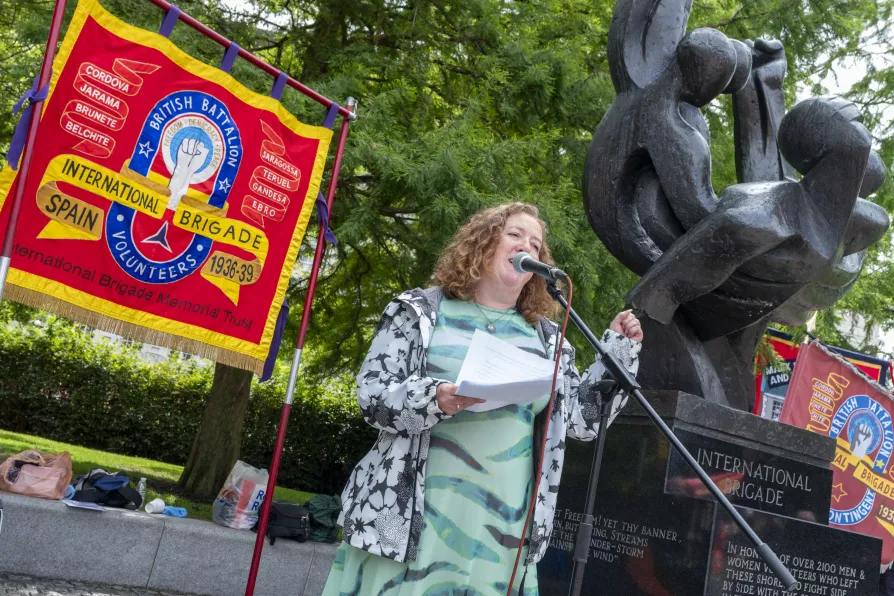The US-Israeli strikes against Iran are part of a decades-long war against the Islamic Republic which has refused to bow to US demands that it surrender its sovereignty, argues VIJAY PRASHAD

 LESSONS OF THE PAST: PCS general secretary Fran Heathcote addresses the IBMT annual commemoration
[Andrew Wiard]
LESSONS OF THE PAST: PCS general secretary Fran Heathcote addresses the IBMT annual commemoration
[Andrew Wiard]
ANTI-FASCISTS gathered in London at the weekend to honour comrades, and to warn against the rising tide of the far right across Europe.
At the International Brigade Memorial Trust (IBMT) annual commemoration in London, family members and activists laid wreaths and flowers to remember the men and women who went to Spain in the 1930s to take on Franco’s rebel army, which was intent on overthrowing the democratically elected republican government.
Folk duo Na-Mara sang The Bite, based on the experiences of volunteer George Wheeler, who in a 2000 interview told of his “bite,” a small piece of wood placed in his mouth as he went into battle. He would clench it as a meagre defence against shell shock.

Spanish dictator Francisco Franco died 50 years ago today November 20. JIM JUMP looks back at his blood-soaked rule and toxic legacy on Spain today

LYNNE WALSH reports from last weekend’s moving remembrance of the International Brigades in London’s Jubilee Gardens where anti-fascists gathered to hear how even in the darkest of times we can build a vision of a better tomorrow, as the Brigaders fought to do 89 years ago

LYNNE WALSH tells the story of the extraordinary race against time to ensure London’s memorial to the International Brigades got built – as activists gather next week to celebrate the monument’s 40th anniversary











